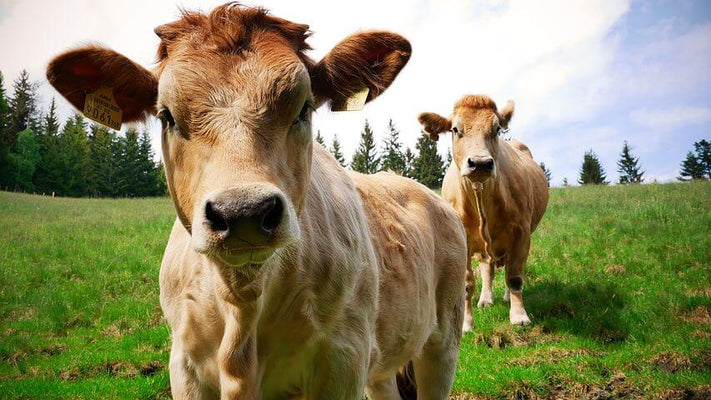Bovine cartilage is a well-known food supplement packed with many health benefits. It is essential to blood vessels, skin, tendons, ligaments, and bones. This protein-rich supplement helps injuries heal faster, aids in swelling reduction, and slows down the skin's ageing process.
Furthermore, it is becoming more well-liked in the cosmetics sector as a potential treatment to promote healthier hair, glowing skin and stronger nails. It’s important to highlight the more and more growing popularity of gummies, especially vegan gummies for hair, skin and nails.
While all these sound nice, can devout Muslims indulge in this beneficial substance without breaking the halal rule? This article answers this question, telling you all you need to know about bovine collagen.

What is bovine collagen?
Bovine collagen is a naturally occurring protein found in humans and many animals. This protein comes in different forms and sources. For example, Yak, antelope, bison, water buffalo, and cows are all members of the genus Bovis.
However, cows are the primary source of bovine collagen. Pigs are also a popular source of collagen. When aquatic animals like fish, jellyfish, and sponges are used to make collagen, they are known as marine collagen.
Uses of bovine collagen
Aged people, smokers, and people who consume lots of sugary or processed carbohydrates often have depleted collage. Hence the need for this supplement.
Bovine collagen is known to play a host of beneficial roles in both humans and animals. Some of them are;
- Reduce the impact of decreased collagen levels.
- Aid reduction of osteoarthritis symptoms.
- Lessen the noticeable ageing symptoms.
- Improve skin health.
- Assists reduction of joint pain and general bone deterioration.
- Strengthens and bolsters hair and nails.

Is bovine collagen halal?
Bovine collagen's halal status depends on the production method and its source. The extraction process includes; boiling the animal bones in water. The collagen is then dried, made into powder, and ready to serve as a supplement.
This process is entirely halal, hence doesn't tamper with bovine collagen halal status. However, while having a halal production method, Bovine collagen may only be considered halal once in a while.
This depends entirely on the animal used and how the producers slaughtered it. If in adherence to Islamic law and contains no haram material, the collage is halal!
How to tell if collagen supplements are halal
For Muslims looking to keep the halal diet yet still consume healthy supplements, The most significant difficulty with collagen supplements is the gelatin content.
Looking at the gelatin content is an excellent way to stay safe, second only to shopping from a trusted halal brand like chewwies! As was already established, either pigs or cattle can be a source of collagen supplements.
While cattle could be halal or not, depending on how the animal was killed, pigs, on the other hand, can not be halal, as pork consumption or products manufactured with it are considered haram.
Only the following sources of collagen are acceptable to Muslims for consumption:
- Collagen isolated from eggs or egg shells.
- Fishes or marine-sourced collagens are halal.
- Collagen of plant origin.
There are two types of collagen; gelatine and hydrolysed collagen, both of them require the same checks to be halal.
The Bottom line
While further research is still required, the hunt for supplements that provide smoother, shinier, and younger-appearing skin makes bovine collagen a dream product amidst other health benefits.
But before you ingest that supplement, be sure it is haram free.


